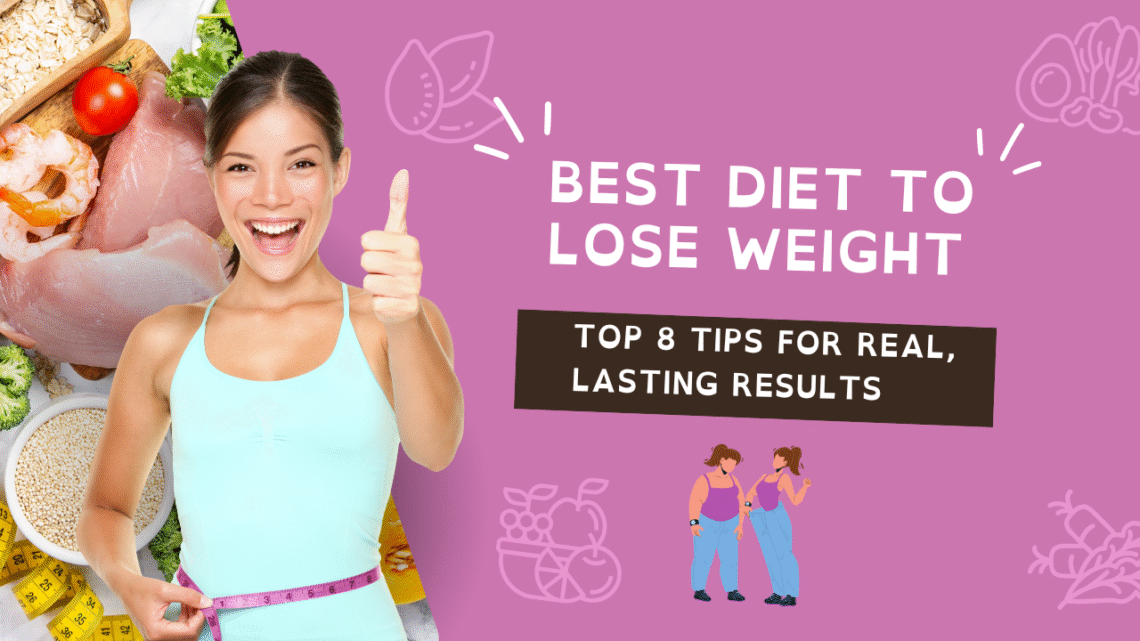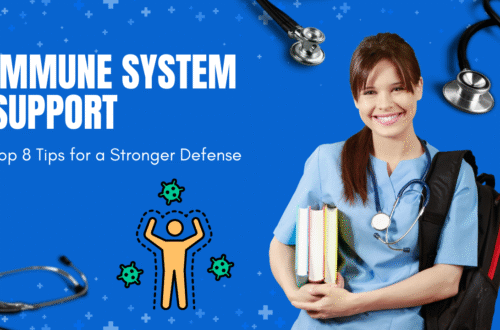Losing weight is one of the most common health goals—but also one of the most misunderstood. With endless diets, fads, and trends bombarding us, it’s easy to get confused or frustrated. The truth? The best diet to lose weight is one that’s balanced, sustainable, and tailored to your unique needs—not a quick fix that leaves you hungry and tired.
In this comprehensive guide, we’ll walk you through the most effective and science-backed strategies for healthy weight loss by focusing on the best diet to lose weight. Successful weight loss isn’t about starving yourself or following unsustainable fads—it’s about making smarter food choices that nourish your body while promoting fat loss. The best diet to lose weight includes nutrient-dense whole foods, balanced meals, adequate hydration, and mindful eating. It also supports your metabolism, keeps your energy stable, and reduces cravings naturally.
We’ve compiled 8 expert-approved tips to help you achieve your weight loss goals and maintain them in the long run. These practical habits are designed to help you control portions, manage hunger, and avoid common pitfalls like emotional or binge eating. By emphasizing lean proteins, healthy fats, fiber-rich carbs, and hydration, this approach balances calories without leaving you feeling deprived.
Whether you’re just starting your weight loss journey or refining your current habits, this guide will help you build a sustainable eating plan that delivers real results. The best diet to lose weight isn’t a temporary fix—it’s a long-term lifestyle that fuels your body, sharpens your focus, and boosts your overall well-being. Let’s dive into the top strategies for success.
🔥 Why Diet Matters in Weight Loss
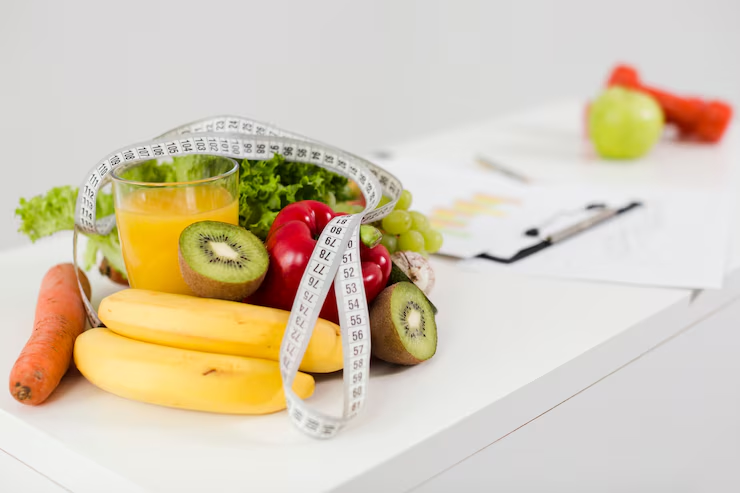
Diet plays a major role in your ability to lose weight. In fact, studies show that weight loss is approximately 80% diet and 20% exercise. While movement is crucial for metabolism and health, what you put on your plate ultimately determines your calorie balance, nutrient intake, and fat-burning potential.
Not all diets are created equal when it comes to achieving lasting weight loss. While crash diets may promise quick results, they often come at a high cost. These extreme eating plans can slow your metabolism, deplete your energy, harm your mental well-being, and lead to the loss of valuable muscle mass instead of fat. In contrast, the best diet to lose weight focuses on sustainability, balance, and nourishment.
Rather than severely cutting calories or eliminating entire food groups, the best diet to lose weight works by creating a gentle, manageable calorie deficit—just enough to promote fat loss while keeping your body fueled and your metabolism active. It emphasizes whole, nutrient-dense foods like vegetables, fruits, lean proteins, healthy fats, and whole grains. These foods provide the vitamins, minerals, and fiber your body needs to thrive.
Importantly, the best diet to lose weight helps you lose body fat while preserving muscle mass and preventing the dreaded “yo-yo” effect. You’ll feel fuller longer, experience fewer cravings, and be more likely to stick with your plan over the long term. Real success comes from nourishing your body—not punishing it. Choose a smarter, more sustainable path to weight loss that truly supports your health and lifestyle
🥗 Top 8 Tips for the Best Diet to Lose Weight
1. Focus on Whole, Nutrient-Dense Foods
The foundation of the best weight-loss diet is simple: eat real food. Whole foods are naturally lower in calories and higher in fiber, which means they keep you full longer and prevent overeating.
Include plenty of:
- Vegetables (especially leafy greens, broccoli, zucchini)
- Fruits (like berries, apples, and citrus)
- Whole grains (quinoa, oats, brown rice)
- Lean proteins (chicken, turkey, tofu, fish)
- Healthy fats (avocados, nuts, seeds, olive oil)
Avoid ultra-processed foods that are high in sugar, refined carbs, and artificial additives. These not only pack on calories but also spike insulin and cause cravings.
2. Prioritize Protein in Every Meal
Protein is the most satiating macronutrient and a key component of the best diet to lose weight. It reduces hunger hormones, boosts metabolism, and helps maintain lean muscle mass—especially important during fat loss.
Great protein sources include:
- Eggs
- Greek yogurt
- Chicken breast
- Lentils and chickpeas
- Salmon and other fatty fish
Aim to include a high-quality protein in every meal and snack. This not only curbs cravings but also keeps your metabolism active.
3. Cut Back on Refined Carbs and Added Sugars
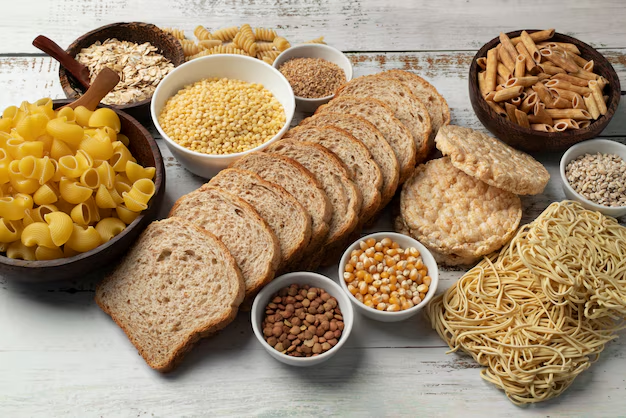
One of the fastest ways to shed extra weight is to reduce your intake of refined carbohydrates like white bread, pasta, pastries, soda, and sweets. These foods are calorie-dense, nutrient-poor, and spike blood sugar, which can lead to fat storage and cravings.
Instead, focus on slow-digesting complex carbs that provide energy without the crash, such as:
- Sweet potatoes
- Brown rice
- Oats
- Legumes
- Quinoa
The best diet to lose weight isn’t about cutting all carbs—it’s about choosing the right ones that nourish your body and keep your energy steady.
4. Practice Portion Control and Mindful Eating
Even healthy foods can lead to weight gain if consumed in excess. Portion control is crucial when trying to lose weight. Learn what a true serving looks like and use smaller plates to avoid overeating.
Mindful eating tips:
- Eat slowly and chew thoroughly
- Avoid distractions like TV or phones while eating
- Stop eating when you feel about 80% full
- Pay attention to hunger vs. emotional eating
Mindful eating builds a better relationship with food and prevents unconscious overeating, making it one of the most powerful diet tips for weight loss.
5. Stay Hydrated and Limit Liquid Calories
Water plays a critical role in fat metabolism, digestion, and appetite regulation. Drinking water before meals can reduce hunger and calorie intake. On the other hand, liquid calories from sodas, sweetened teas, energy drinks, and even fruit juices add up quickly—and don’t satisfy hunger.
Weight-loss hydration tips:
- Aim for 8–10 glasses of water daily
- Drink a glass of water 15–30 minutes before meals
- Replace sugary drinks with herbal teas, lemon water, or black coffee
A hydrated body burns fat more efficiently, and skipping sugary beverages can save hundreds of calories per day.
6. Plan Your Meals and Prep Ahead
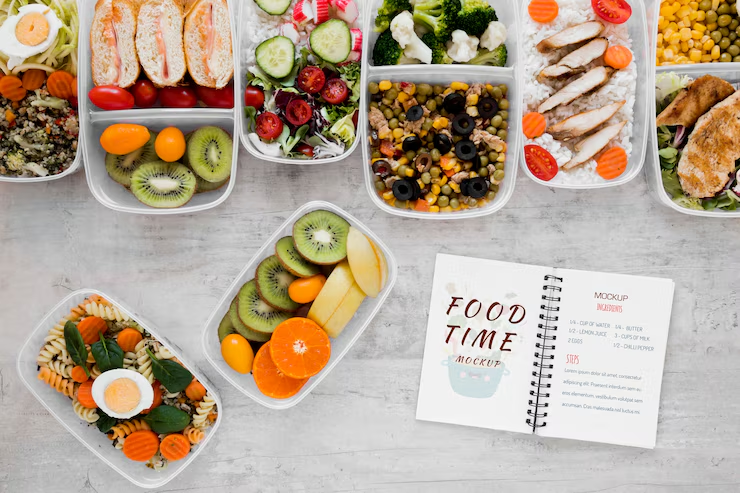
One of the biggest obstacles to successful weight loss is impulsive eating. When hunger strikes and you don’t have a plan, it’s easy to reach for fast food, sugary snacks, or processed convenience meals. This not only derails your progress but also contributes to inconsistent calorie intake and poor nutrition. That’s why meal planning is a powerful strategy within the best diet to lose weight. It puts you in control of what you eat, how much you eat, and when you eat.
By preparing meals and snacks in advance, you reduce the temptation to make unhealthy choices. You can also better manage portion sizes and ensure each meal includes a balance of protein, fiber, healthy fats, and complex carbs. Planning also saves time and reduces stress, making it easier to stick with your goals. For sustainable results, the best diet to lose weight always includes thoughtful, consistent meal preparation.
Meal prep tips:
- Plan weekly menus
- Prep ingredients or cook in batches on weekends
- Portion meals into containers for grab-and-go convenience
- Keep healthy snacks like fruit, nuts, or yogurt on hand
A structured plan eliminates guesswork, reduces stress, and keeps your diet on track.
7. Don’t Fear Healthy Fats
For decades, fat was unfairly blamed as the main cause of weight gain. However, current research shows that healthy fats are vital for overall wellness. In fact, the best diet to lose weight includes moderate amounts of good fats because they support hormone production, brain function, and help control hunger. Unlike refined carbs that spike blood sugar and leave you hungry soon after, healthy fats slow digestion and promote satiety—keeping you fuller for longer.
Avocados, nuts, seeds, olive oil, and fatty fish like salmon are excellent sources of beneficial fats. When included mindfully in your meals, these foods can actually aid in fat loss by reducing cravings and preventing overeating. The key is balance: avoid trans fats and processed oils while focusing on whole, nutrient-rich sources.
Incorporating healthy fats is a smart move when following the best diet to lose weight, helping you nourish your body while shedding excess pounds sustainably..
Choose sources like:
- Avocados
- Extra virgin olive oil
- Chia and flax seeds
- Nuts and nut butters
- Fatty fish (salmon, mackerel)
Just watch your portions—fats are calorie-dense, so a little goes a long way.
8. Be Consistent and Patient with Your Diet
Weight loss is a gradual journey, not a race. The best diet to lose weight is one that’s realistic, sustainable, and tailored to your preferences. Quick fixes may show short-term results, but true, lasting transformation comes from daily habits you can maintain for months—or even years. Choose a plan that complements your lifestyle, whether it’s meal prepping for busy weeks, incorporating favorite healthy meals, or enjoying treats in moderation.
To stay motivated, track your progress beyond the scale. Take photos, record measurements, or journal your daily habits. Celebrate non-scale victories like improved mood, better sleep, increased energy, and clearer skin. These signs show your plan is working from the inside out.
Slip-ups are normal. What matters most is practicing self-compassion and getting back on track. The best diet to lose weight allows flexibility without guilt. Focus on progress, not perfection.
Most importantly, shift your mindset from weight loss to overall health. When you nourish your body, move regularly, and stay mentally balanced, weight loss becomes a natural side effect. Patience, persistence, and positivity will help turn healthy eating into a lasting lifestyle—one that supports both your physical and emotional well-being.
🧠 Common Myths About Dieting and Weight Loss
There are many myths surrounding the best diet to lose weight, and believing them can actually sabotage your progress. Let’s break down three of the most common ones and uncover the real truth behind healthy weight loss.
❌ Myth 1: Carbs are the enemy
Truth: Carbohydrates are your body’s main source of energy and play a crucial role in brain and metabolic function. The key is to choose the right kind of carbs. Complex carbs such as oats, sweet potatoes, brown rice, and whole grains provide long-lasting energy and fiber, while refined sugars and processed carbs spike blood sugar and lead to fat storage.
❌ Myth 2: Skipping meals speeds up weight loss
Truth: Skipping meals may seem like a shortcut to fewer calories, but it often backfires. It can slow down your metabolism, increase cravings, and lead to overeating later in the day. For the best diet to lose weight, eat regularly spaced, nutrient-rich meals to keep your metabolism active and hunger in check.
❌ Myth 3: Fat-free means healthy
Truth: Many fat-free or “diet” products are loaded with added sugars, preservatives, or artificial ingredients. Healthy fats from foods like avocados, nuts, seeds, and olive oil are actually essential for hormone regulation and satiety. The best diet to lose weight focuses on whole, unprocessed foods—not marketing labels.
🥣 Sample Meal Plan: Best Diet to Lose Weight
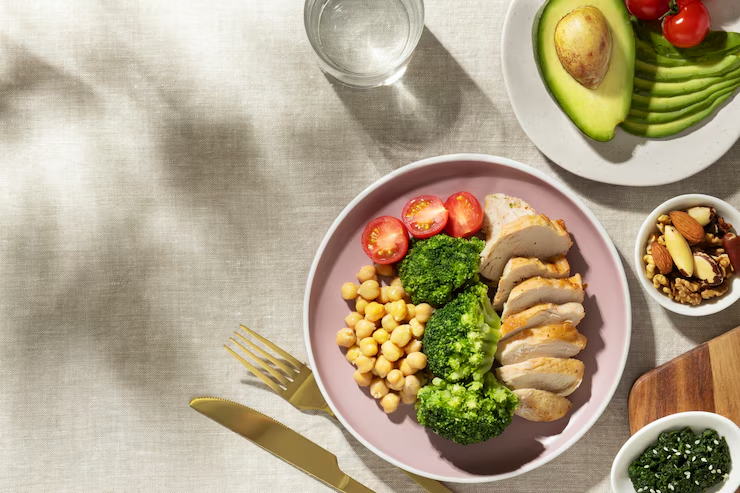
Here’s a sample day to show how easy, satisfying, and realistic the best diet to lose weight can be—without deprivation or bland meals. This daily plan is balanced with lean protein, healthy fats, fiber, and complex carbohydrates to keep you energized, full, and on track with your weight loss goals.
Breakfast:
Start your morning with a hearty bowl of oatmeal topped with almond butter, chia seeds, and blueberries. This combination delivers sustained energy and fiber. Pair it with green tea for a metabolism-boosting antioxidant kick.
Mid-Morning Snack:
A hard-boiled egg and a small apple offer the perfect mix of protein and fiber to keep hunger at bay until lunch.
Lunch:
Enjoy a grilled chicken salad loaded with colorful vegetables and topped with a light olive oil vinaigrette. Add a scoop of quinoa on the side for satisfying whole grains.
Afternoon Snack:
Savor a cup of Greek yogurt with a few walnuts for healthy fats, protein, and probiotics that support digestion and satiety.
Dinner:
Opt for baked salmon, which is rich in omega-3 fatty acids, alongside steamed broccoli and roasted sweet potato for a nutrient-dense, delicious meal.
Dessert (Optional):
Finish with a few squares of dark chocolate or fresh fruit slices to curb your sweet tooth the healthy way.
This is how the best diet to lose weight keeps things flavorful, balanced, and totally doable!
🧾 Final Thoughts: Your Sustainable Weight Loss Plan
The best diet to lose weight doesn’t require you to be perfect or give up all your favorite foods. Instead, it’s about making smarter choices, being consistent, and developing a healthy relationship with food. Fad diets may promise quick fixes, but lasting weight loss happens when you create sustainable habits that nourish your body while helping you reach your goals.
By focusing on whole foods—like fresh fruits, vegetables, lean proteins, whole grains, and healthy fats—you give your body the nutrients it needs to function optimally. Balanced meals that include all three macronutrients help stabilize your blood sugar, keep you full longer, and reduce cravings. Incorporating hydration and being mindful of portion sizes are also crucial elements of the best diet to lose weight.
Additionally, building self-awareness—recognizing emotional triggers for eating, learning your body’s hunger cues, and tracking progress—can help you stay motivated without obsessing over every calorie. The top 8 tips in this guide will empower you to make practical, science-backed changes that are easy to maintain in the real world.
Remember, the best diet to lose weight isn’t about punishment—it’s about empowerment. With time and dedication, you’ll not only lose unwanted weight but also gain energy, improve your health, and feel more confident in your own skin. Most importantly, you’ll create a lifestyle that supports long-term wellness, not just a temporary fix. Start with one change at a time, stay consistent, and success will follow.
Forget fad diets. Choose habits that nourish your body and support your goals. With a little planning and patience, weight loss can be natural, healthy, and even enjoyable.
✅ Summary of Top 8 Diet Tips to Lose Weight:
- Eat whole, unprocessed foods
- Prioritize protein
- Cut refined carbs and added sugar
- Practice mindful eating
- Drink more water
- Meal prep and plan ahead
- Include healthy fats
- Stay consistent and patient
Here are 5 frequently asked questions (FAQs) about the best diet to lose weight, along with clear and informative answers:
FAQ
1. What is the best diet to lose weight fast?
The best diet to lose weight quickly and safely is one that emphasizes whole, unprocessed foods—like vegetables, fruits, lean proteins, healthy fats, and whole grains—while maintaining a gentle calorie deficit. Fad or crash diets may lead to rapid weight loss, but they’re often unsustainable and can harm your metabolism. A balanced, nutrient-rich diet supports steady fat loss and long-term results.
2. How many calories should I eat to lose weight?
This depends on your age, gender, activity level, and current weight. Generally, reducing your daily intake by 500–750 calories can help you lose 1–1.5 pounds per week. However, never go below 1,200 calories for women or 1,500 for men without medical supervision. The best diet to lose weight prioritizes quality over strict calorie counting.
3. Do I need to cut out carbs to lose weight?
No, carbs are not your enemy. Whole carbs like oats, sweet potatoes, quinoa, and fruits provide fiber and energy. The key is to limit refined carbs and sugars. The best diet to lose weight includes smart carbs in controlled portions.
4. Can I lose weight without exercise?
Yes, weight loss is primarily driven by diet. However, combining a healthy diet with physical activity enhances results and supports muscle retention. The best diet to lose weight works best when paired with regular movement.
5. How long will it take to see results?
Most people begin to see changes within 2–4 weeks of following a healthy eating plan. Sustainable weight loss is typically 1–2 pounds per week. Be patient—the best diet to lose weight is one you can stick with for life.
